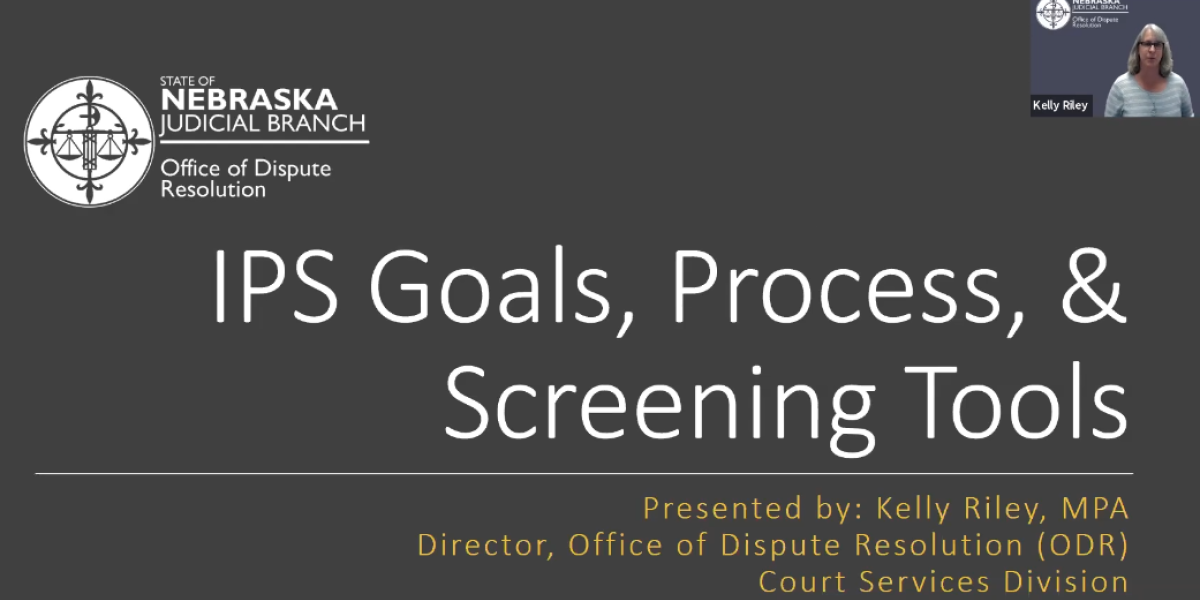Training Offered to Parenting Act Mediators on New Screening Tools
The Office of Dispute Resolution (ODR) provided web-based training to 106 mediators on new screening tools available for the Initial Individual Private Session (IPS). By statute, Parenting Act/parenting plan mediators shall provide an individual initial screening session with each party using State Court Administrator-approved screening tools. Based on the screenings, mediators have a duty to determine how to structure the mediation – joint sessions or specialized Alternative Dispute Resolution (ADR) – or end the mediation if the case is not appropriate for either process.
The first approved screening tool was developed collaboratively in 2007 between mediators, attorneys, and domestic violence professionals, and has served Nebraska mediators well for many years. While the initial tool is still effective and remains an approved tool, an ODR workgroup determined that one tool does not fit all mediators. Therefore, two additional tools were developed and approved by the State Court Administrator. Additionally, the workgroup wanted to provide further guidance to mediators related to the IPS and created a document titled Goals and Process for an Initial Individual Private Session.
The October 6, 2021, training covered the Goals and Process resource and provided information on the two new tools. One tool is for experienced mediators and outlines the topics to be covered in a screening, the same topical areas as the original screening tool, which is based on the Duluth Power and Control Wheel. The second tool was developed with the Battered Women’s Justice Project based on their SAFeR program. This tool provides a structure for a guided conversation and outlines what to listen for. For example, where does the person fall on a continuum in their personal interactions? Are they safe/secure or fearful/anxious, or somewhere in between? There are also specific examples to listen for, such as insults and put-downs and public ridicule, as examples.
Mediators now have more options available as they meet with parties to hear their stories and determine how best to move forward. The bottom line is that mediators are responsible for ensuring that parties are provided with a process in which they are able to negotiate freely and make informed decisions.
. . . Submitte by: Kelly Riley

